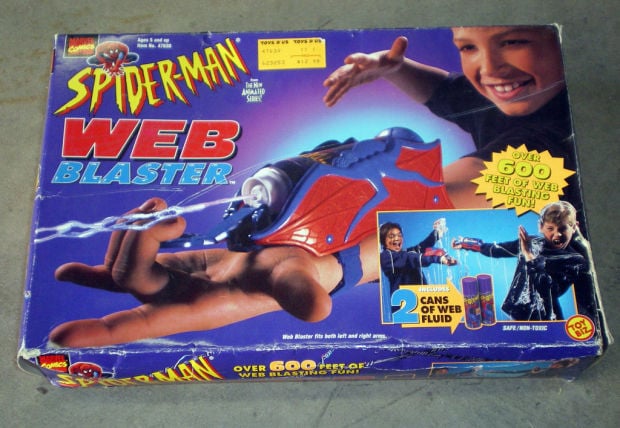A Tucson attorney who designed and patented a Spider-Man toy got ensnared in his own legal web because of how he negotiated a deal with Marvel Comics.
In a ruling Tuesday, the 9th U.S. Circuit Court of Appeals said the comic-book giant is no longer obligated to pay royalties to Stephen Kimble for its manufacture of a glove that shoots out a foam string.
The judges said a strict reading of the royalty arrangement Kimble made with Marvel shows it ended in 2010.
Appellate Judge Consuelo Callahan, writing for the unanimous court, appeared sympathetic to Kimble's situation. In fact, she wrote that he might have been able to obtain higher royalty payments from Marvel had he understood that, based on U.S. Supreme Court precedent, the deal he did sign meant checks would stop when the patent expired.
But Callahan said she and her colleagues are bound by the precedents set in a 1964 U.S. Supreme Court ruling dealing with such situations.
"I'm obviously disappointed," Kimble said.
He also said that 1964 precedent is unfair and he intends to ask the nation's high court to revisit and overturn it.
Despite Tuesday's ruling, it's not like Kimble is walking away with nothing. Court records show he already collected more than $6 million in royalties from Marvel.
And the appellate court, in a separate ruling, also left the door open for Kimble to try to collect additional funds from Marvel.
The judges said there was a valid verbal commitment made by Marvel officials in 1990 to pay him if it developed his idea. And they are giving him another chance to present evidence that commitment remains.
Series of lawsuits
Tuesday's ruling is the latest in a string of lawsuits over Kimble's 1990 idea, which he said came about because "I had a kid who was not a real big fan of reading." But the child, Kane, loved Spider-Man comics and the two read them together before bed.
That led to a discussion of whether Kimble could come up with a toy that would allow a child to play at Spider-Man. "We eventually came up with a workable plan. And we had it patented."
The toy has a trigger attached to a valve in the palm of the glove. That valve was attached to a flexible line leading to a can of foam that could be strapped to the user's wrist or waist. Press the trigger and a string of foam shot out.
Later that year, Kimble met with an executive of Toy Biz Inc., the company that had the right to market Marvel toys, to pitch the idea. Kimble said the executive told him Marvel would compensate him if it ever decided to use any of his ideas. But the company later said it was not interested.
In 1995, however, Marvel began manufacturing a similar toy called the "Web Blaster," contending it had come up with the idea independently. Kimble subsequently sued.
A federal judge threw out a claim of patent infringement. But a jury concluded Marvel had breached an oral contract with Kimble, awarding him 3.5 percent of past, present and future product sales.
In 2002 they settled out of court, with Marvel purchasing the patent, providing $516,000 immediately and 3 percent of sales that would infringe on the patent.
A subsequent squabble over royalties on variations of the toy brought the case back to federal court. That resulted in a trial judge ruling that the deal Kimble signed included his patent rights. And that meant the royalties had to end when the patent expired.
Time limits
Callahan wrote that Congress, in enacting patent laws, granted inventors the exclusive right to make, use or sell their discoveries for limited times. Under the the law, that is 20 years in most cases. After that, the rights become public property.
Callahan said there can be agreements to pay royalties beyond the period of a patent. But she said such pacts need a discounted rate to show that the inventor was not using the patent as leverage, which she said Kimble's agreement with Marvel didn't have.
Kimble said he will appeal to the U.S. Supreme Court.
He said the purpose of that 1964 ruling was to make sure that when a patent expires, so does the monopoly on that item. But he said that should not overrule an agreement between an inventor and a manufacturer to provide payments as long as the company continues to make profits off that product.
"All this does is screw inventors," he said.
Appellate Judge Consuelo Callahan, writing for the unanimous 9th U.S. Circuit Court of Appeals, appeared sympathetic to Kimble's situation. But Callahan said she and her colleagues are bound by the precedents set in a 1964 U.S. Supreme Court ruling.





